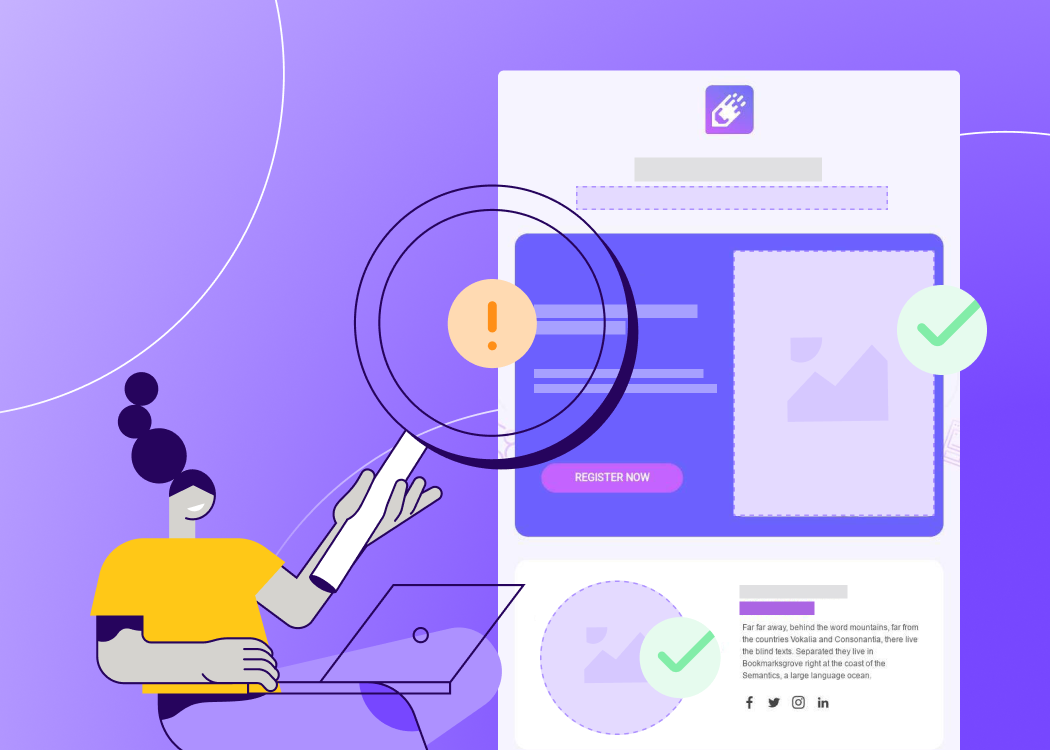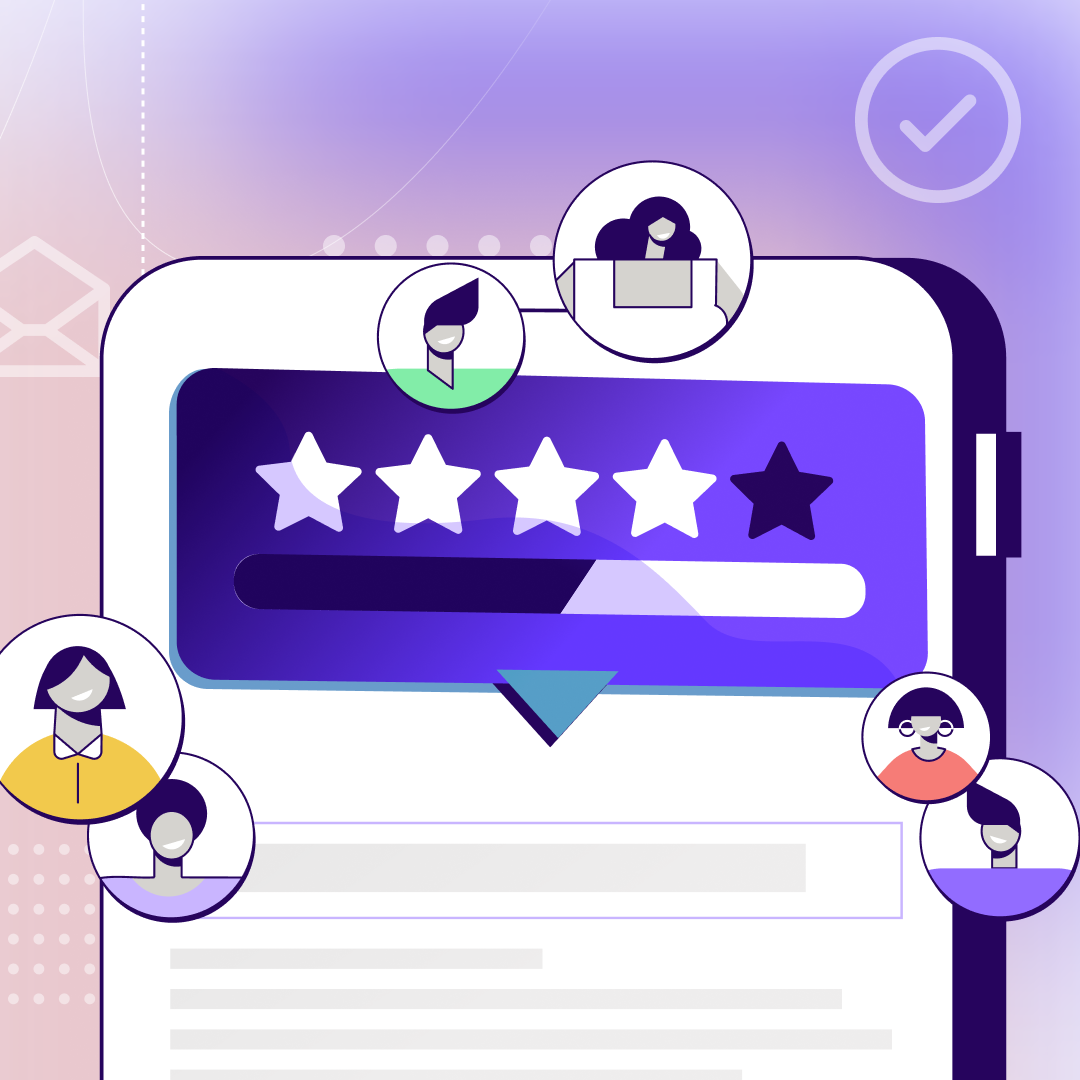
For this month's spotlight, we're featuring BEE's very own Shivangani "Shiv" Bedi. In our search for an Email Marketing Consultant, Shiv came highly recommended, and immediately, we knew she was the right fit for our team.With 13 years of email marketing experience, Shiv has the important job of communicating with our 350,000 email subscribers across all our solutions and newsletters. Her extensive experience keeps us in check when creating inclusive emails and helps us communicate with our diverse audiences. And, of course, recommends the best tools in the market to get things done efficiently (BEE Pro being one of them, of course).Thank you, Shiv, for being such a great part of our team! Here's a little about her story:
Can you walk us through your journey as a marketer?
My passion for email marketing started far back during my college years. During class, we were assigned a task to “build our own websites,” and I fell in love with both the technical and non-technical aspects of this project. The rest is history.My career path has been like a waterfall, moving in one direction, sometimes very steady and other times full of motion.During this 13-year-long journey, I've had the opportunity of working across three different continents - India, The United Kingdom, and Canada. I've been part of many start-ups and multi-billion dollar companies, both in-house and in agency environments. Each role helping me gain more knowledge and experience in digital marketing than the last.My first title was Assistant Manager in a start-up organization. My specialty? Generating leads for Insurance products. To be truthful, it was a very challenging job, but it was during this time I got an opportunity to wear my email marketer hat. A hat that I have never taken off. After that, I worked as a Business Analyst at Tesco HSC India. It was here that I learned all the ins and outs of email marketing operations. This role was heavy on coordination with data, creatives, stakeholders, and content teams to strategize and deploy email campaigns.In pursuit of more, I began working with “Mapp Digital.” This is the largest independent digital marketing technology organization in the world, with corporate offices in the U.S. and The UK, so the stakes were high. For five years, I worked in a fast-paced agency and managed a team of 6. Our goal was to deliver error-free and on-brand campaigns. I was awarded “MappStar” & PS Person of the Year” for two consecutive years.Finally, I began my journey with MRM Mccan group, a global direct and digital marketing agency. I worked with a leading automobile brand and assisted in auditing their programs/build journeys on the Responsys ESP platform. This role allowed me to explore the technical parts of the programs, as I helped identify the right tools and technologies to improve and build the best-in-class automation.And in between all of that, I worked for some big brands in the food industry, such as Skipthedishes and Goodfood. Managing end-to-end email/mobile marketing channels with esp like Braze and Emarsys. As I said, my career path in the last 13 years has been nothing short of fulfilling ;).
What makes you unique within the space? How do you infuse your different identities into your work?
Over the past 13 years, I've worked with so many different ESP platforms that I like to say I am an "ESP agnostic resource."I have also witnessed digital transformation. When I graduated, everything was done manually, now, there are hundreds of tools to help us automate campaigns within a few minutes. I've had to constantly incorporate evolving technologies into the strategies I pitch.Due to this, I like to think I am a well-versed email marketer that can manage the 360 spectrum of email/mobile channels, as well as the technical and non-technical aspects of the job.I have a multitude of identities and experiences that make me unique. This includes my race, ethnicity, culture, religion, sexual orientation, and socioeconomic background.Infusing my identity into my work has allowed me to build strong authentic connections with colleagues and clients. As well as bring unique and valuable perspectives to the table.
As someone representative of many different cultures and identities, what are your best email marketing tips for creating inclusive emails?
Creating inclusive marketing campaigns requires a thoughtful and intentional approach. An approach that prioritizes respect for diverse cultures and identities. By keeping these tips in mind, you can create marketing materials that resonate with a wide range of people and promote a more inclusive society.
1. Know your audience
Before creating a marketing campaign, research and understand the demographics of your target audience, including their cultural backgrounds, values, and beliefs. This will help you create messaging that resonates with them and avoids stereotypes or offensive language.
2. Use inclusive language
Avoid language that could be considered offensive or exclusionary to any particular group. Use gender-neutral language where possible, and avoid using slang or regional dialects that may be unfamiliar to some audiences.Read more: 3 Tips for More Diverse and Inclusive Emails
3. Incorporate diverse imagery
Include images and visuals that represent a diverse range of cultures, races, ages, and abilities. This can help make your marketing materials more relatable and inclusive.
4. Seek feedback
Consider seeking feedback from members of diverse communities to ensure your're writing inclusive emails that are culturally sensitive and appropriate. This can help you avoid unintentionally offending or excluding certain groups.
5. Emphasize shared values
Focus on the values that your product or service can offer to a diverse range of people rather than solely emphasizing one particular cultural or identity group. This can help you appeal to a wider audience while still acknowledging and celebrating diversity.
6. Be authentic
Ensure that your marketing materials accurately represent your brand's values and mission, and avoid cultural appropriation or tokenism. Be honest and transparent in your messaging, and demonstrate a commitment to diversity and inclusion through your actions as well as your words.
In what ways do you think the email marketing space can better support and elevate diverse voices?
1. Prioritize diversity and inclusion in hiring:
The marketing industry should actively seek out and hire individuals from diverse backgrounds, including people of color, LGBTQ+ individuals, and individuals with disabilities. This will help ensure that diverse perspectives are represented throughout the marketing process. These individuals should be part of the process of developing something as big as your mission statement to something small like sending out inclusive emails.
2. Provide training and education
The marketing industry should invest in training and education programs that help individuals understand and address issues related to diversity and inclusion. This includes providing education on topics like cultural competency, implicit bias, and intersectionality.
3. Foster an inclusive culture
I can’t emphasize how important this point is. Companies should create a culture that values and celebrates diversity and inclusion. This includes promoting open communication, providing opportunities for feedback, and encouraging employees to bring their whole selves to work.
4. Amplify diverse voices in marketing campaigns:
Finally, the marketing industry can help craft inclusive emails by elevating diverse voices. My recommendation is to actively seek out individuals with different backgrounds and experiences and make it a priority to amplify the voices that are so often ignored. This can include working with diverse influencers, featuring diverse individuals in advertisements, and creating content that celebrates diverse cultures and identities.Overall, the marketing industry has a responsibility to prioritize diversity and inclusion and ensure that diverse voices are represented and elevated in all aspects of the marketing process. By taking these actions, we can create a more equitable and inclusive society.
Where do you see email marketing in 5 years?
Email marketing has been around for several decades and has proven to be an effective marketing tool for businesses of all sizes. However, the way that people use and interact with email has changed significantly in recent years. Here are some potential developments that we may see in the next five years:
1. Greater personalization (1-to-1 marketing)
Personalization has become increasingly important in email marketing, and this trend is likely to continue in the years to come. Businesses may use advanced data analytics and machine learning algorithms to tailor their email campaigns to individual customers' interests and behaviors.
2. More automation
Email marketing automation has become more widespread in recent years, and this trend is likely to continue. Automation can help businesses save time and resources by automatically sending personalized emails based on triggers such as customer behavior or purchase history.
3. More interactive emails
Interactive emails that include embedded videos, animations, and other multimedia elements are becoming more common. As email clients and devices become more advanced, we may see even more interactive email experiences that help businesses engage with their audiences in new and exciting ways.
4. Better email accessibility
Email accessibility has become increasingly important, with more businesses working to make their emails accessible to people with disabilities. In the next 5 years, we may see more email clients and marketing platforms provide built-in accessibility features to help businesses reach a wider audience.
5. Continued integration with other marketing channels
Email marketing is just one piece of the larger marketing puzzle, and businesses are likely to continue integrating their email campaigns with other marketing channels, such as social media and content marketing. This can help create a more cohesive and effective marketing strategy.To conclude, email marketing is likely to continue evolving in the years to come, with new technologies and trends shaping the way that businesses engage with their audiences through email. By staying up-to-date with these developments, businesses can continue to leverage email as a powerful marketing tool in the years to come.



